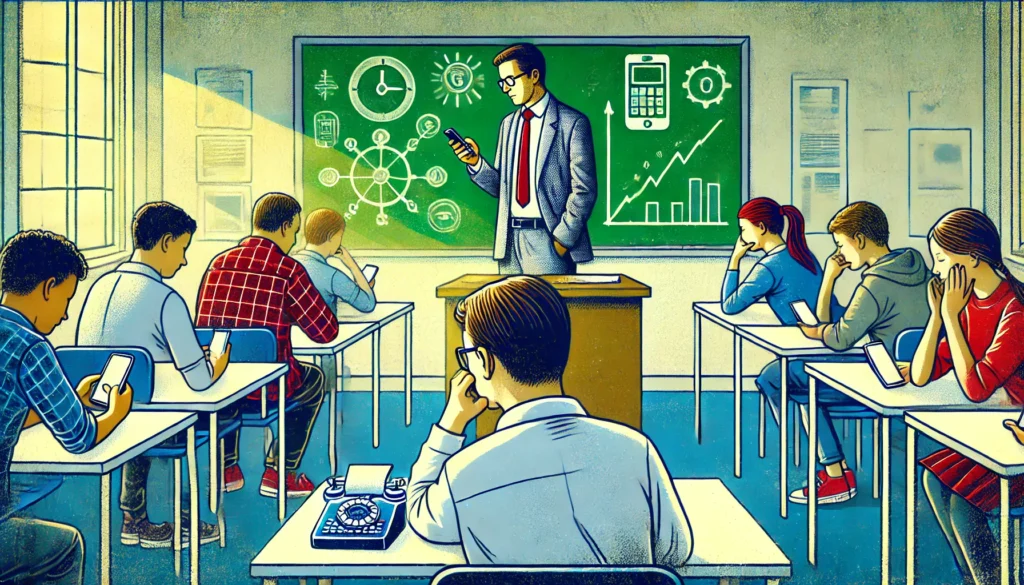In an era dominated by digital communication, personal interactions have been significantly impacted by the presence of smartphones. One behavior that has gained widespread attention is phubbing—a combination of “phone” and “snubbing.” It refers to the act of ignoring someone in a social setting by focusing on one’s phone. This article delves into the nuances of phubbing, its consequences, and the steps we can take to mitigate its effects.
The Origins of Phubbing
The term “phubbing” was introduced in 2012 by an Australian advertising agency during a campaign to raise awareness about smartphone addiction. Although the phenomenon existed before, this terminology gave it a distinct identity, encouraging conversations about its implications.
Prevalence in Society
Phubbing has become an almost universal behavior. Studies reveal that it affects personal relationships, workplace productivity, and social harmony. The accessibility of smartphones combined with the allure of instant gratification has made phubbing a common yet disruptive habit.
Psychological and Social Impacts
Effects on Relationships
Phubbing often creates a sense of neglect, especially in close relationships. When one partner prioritizes their phone over a conversation, it can lead to feelings of rejection and dissatisfaction. This is particularly evident in romantic relationships, where emotional neglect caused by phubbing is a frequent cause of disputes.
Mental Health Consequences
Both the person phubbing and the one being phubbed experience mental health challenges. The former may develop a dependency on their smartphone, while the latter often feels undervalued. Prolonged exposure to such behavior can lead to anxiety, low self-esteem, and depression.
Factors Contributing to Phubbing
Smartphone Addiction
One of the primary drivers of phubbing is smartphone addiction. The continuous need to check notifications, social media, and emails overrides the importance of in-person communication.
Fear of Missing Out (FoMO)
Another significant factor is FoMO, the fear of missing out. People feel compelled to stay connected to their online world, fearing they might miss important updates or events.
Recognizing Phubbing Behavior
To address phubbing, it is vital to recognize the behavior. Some common indicators include frequent phone usage during conversations, inability to focus on face-to-face interactions, and a strong dependency on smartphones.
| Behavior | Indication |
| Checking the phone frequently | Distracted during conversations |
| Interrupting discussions for notifications | Lack of engagement |
| Using the phone even in crucial moments | Dependence on digital interactions |
Strategies to Combat Phubbing
Individual Approaches
- Mindful Usage: Being aware of one’s smartphone usage during social interactions is a crucial first step.
- Setting Boundaries: Establishing phone-free zones or times can significantly reduce phubbing.
- Reflection: Reflecting on the negative impact of phubbing on relationships can motivate behavior change.
Social and Technological Interventions
- Group Agreements: In social or family settings, collective agreements to limit phone usage can enhance interactions.
- Technology Solutions: Apps that monitor screen time and remind users to disconnect can also be effective.
The Role of Technology in Phubbing
While smartphones are the cause of phubbing, they can also be part of the solution. Developers can introduce features like focus modes, screen time tracking, and digital wellbeing prompts to help users manage their phone dependency.
Future Perspectives on Phubbing
As awareness about phubbing grows, societal norms are likely to evolve. Public campaigns, educational programs, and conscious efforts by individuals and organizations will play a pivotal role in reducing phubbing, promoting healthier relationships, and fostering better communication habits.
FAQs
How does phubbing affect parent-child relationships?
Phubbing can significantly impact parent-child relationships by reducing the quality of interactions. When parents are engrossed in their phones, children may feel neglected or unimportant, leading to behavioral issues and emotional detachment over time.
Can phubbing impact educational environments?
Yes, phubbing is increasingly observed in educational settings. When students or teachers are distracted by smartphones during lessons, it disrupts the learning process and diminishes classroom engagement.
What are some cultural differences in perceptions of phubbing?
Attitudes toward phubbing vary across cultures. In some societies, digital engagement during social interactions is more accepted, while others view it as disrespectful and disruptive to traditional communication norms.
Are there legal or policy measures addressing phubbing in public spaces?
While there are no direct laws against phubbing, some institutions and organizations have policies discouraging phone usage in meetings, restaurants, or other social environments to enhance interaction and productivity.
How does phubbing correlate with loneliness?
Ironically, while phubbing is driven by a desire to stay connected online, it often leads to increased feelings of loneliness. Both the phubber and the phubbed individual can experience social isolation due to diminished real-world connections.
Conclusion
Phubbing has become a widespread phenomenon that disrupts personal connections and social dynamics. By understanding its causes, recognizing its impacts, and implementing strategies to combat it, we can foster more meaningful relationships in a world dominated by digital distractions.
Recommended Articles
The Ultimate Guide to Indeed: Everything You Need to Know
Перекладач: A Comprehensive Guide to Translators and Their Impact
Diccionario Español Inglés: La Guía Completa para Elegir el Mejor
Combating Faisalabad Fake Notes: A Comprehensive Guide



